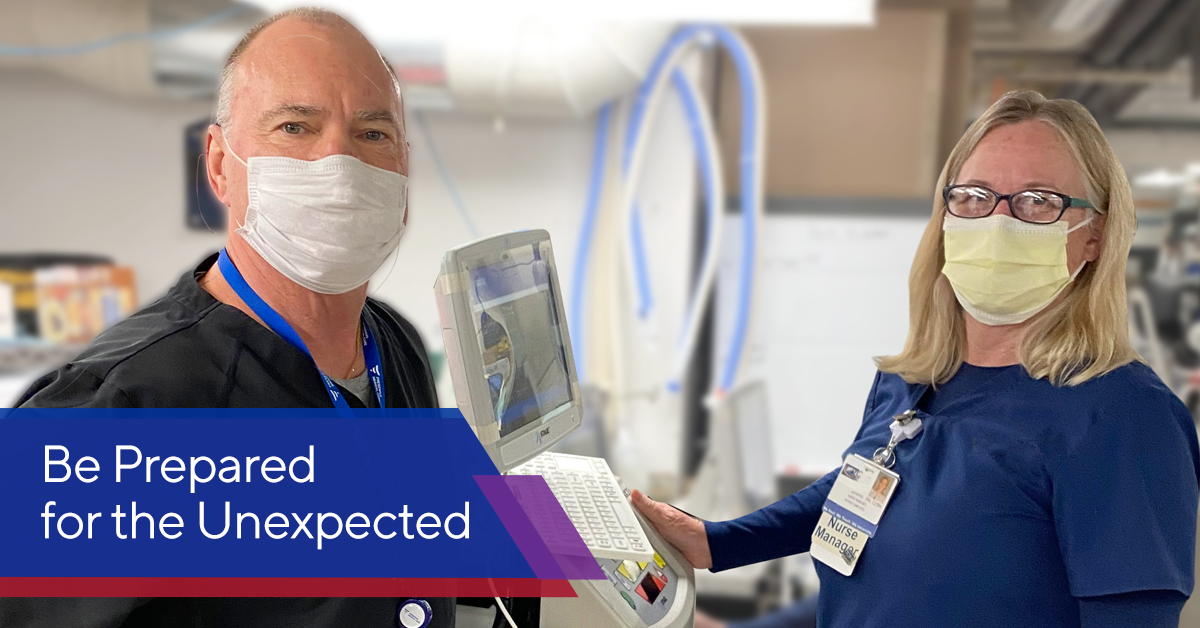
In Acute Dialysis Care, Emergency Preparedness is Critical
Whether their condition is acute or chronic, patients with kidney failure need life sustaining dialysis. Even one missed treatment can create serious complications. When an emergency threatens to disrupt treatments, it’s critical for hospitals and other healthcare facilities to have plans and resources necessary to always maintain this therapy.
Every year, NxStage, from Fresenius Medical Care, supports healthcare organizations with supplementary supplies, dialysis machines, and training in the wake of floods, hurricanes, and other disasters. The lack of clean water to make dialysate can pose a serious danger to dialysis patients, unless you have the right equipment.
NxStage Critical Care Provides Critical Assistance
Recently, in Tampa, Florida, a massive water main burst, spilling 12 million gallons and draining the city of its clean water supply. While a boil-water advisory created an inconvenience for city residents and businesses, the situation was more serious for a large area hospital. Patients needed dialysis, yet there was no sanitary water available to administer therapy. Fortunately, the NxStage Critical Care Team was ready to assist.
Ken Thomas (a Therapy Specialist with NxStage Critical Care) was already scheduled that day to assemble and inspect six new NxStage System One dialysis machines at the same hospital. The machines had been ordered to deploy in the event of a surge in acute kidney injury cases brought on by COVID-19,1 and proved to be equally important in mitigating the problems brought on by the water main break.
Hard at work in the Biomedical department, Ken received an urgent text from the Medical Intensive Care Unit (MICU) Nurse Manager. Two patients needed dialysis, and she wanted to know how quickly he could have their new machines up and running.
No Water? No Problem.
Unlike some dialysis machines, the NxStage System One uses prepackaged fluids, eliminating the need for an external water source and making it an ideal resource in emergency situations such as this. The machine is chosen by many ICUs for this and other features, including its portability and versatility.
Ken quickly and adeptly deployed two of the six NxStage systems and, as soon as the acute patients were getting therapy, he set to work finishing the remaining four. He stayed at the hospital well past the end of the business day to ensure everything was running smoothly and the staff could provide dialysis until the city’s water was safe again.
“One of the best qualities of the NxStage System One is its flexibility,” explains Ken. “It’s a hemodialysis machine that can do continuous renal replacement therapy (CRRT) and prolonged intermittent renal replacement therapy (PIRRT). And since the machine uses sterile therapy fluid in bags, it’s able to provide the patient with dialysis, even when there is a water main break and no access to water.”
It took more than 48 hours before Tampa lifted the advisory. During that time, the hospital delivered several more rounds of dialysis therapy using the premixed dialysate.
“Eight treatments were performed in our unit during this disaster,” said the Nurse Manager. “The PIRRT experience was positive, and my team was thankful to the Critical Care team for assisting with these patients.”
All Too Common Occurrence2
The situation in Tampa is not an outlier. Earlier the same year, physicians with the University of Chicago implemented the same solution when alarms signaled poor water quality and shut down dialysis to several patients.
In a journal article published in Kidney360, Dr. Orly Kohn and her co-authors state that “Our ability to pivot to a system with bagged dialysate allowed us to provide urgent and maintenance treatments for our inpatient population without compromising patient safety, ultrafiltration, and urgent clearance needs.”3
Every year, hundreds of local water issues occur that can last days, weeks, or even months. While no national organization tracks all the incidents, boil water advisories are not uncommon, as documented in this investigative piece by the Huffington Post.4
In the world of dialysis care, expecting and preparing for the unexpected is essential. Having a plan, the right resources on hand, and a trusted partner can make all the difference, ensuring hospitals and healthcare providers are able to continue delivering life-sustaining therapy, even in the midst of an emergency.
Renal replacement therapy, as with any medical therapy is not without risks. The decision of which therapy to use should be made by the physician, based on previous experience and on the individual facts and circumstances of the patient. There is no literature demonstrating one therapy is clinically better than another.5
- Hirsch JS, Ng JH, Ross DW, Sharma P, Shah HH, Barnett RL, Hazzan AD, Fishbane S, Jhaveri KD; Northwell COVID-19 Research Consortium; Northwell Nephrology COVID-19 Research Consortium: Acute kidney injury in patients hospitalized with COVID-19. Kidney Int 98: 209–218, 2020.
- The aging water infrastructure: Out of sight, out of mind? Deloitte Touche Tohmatsu Limited (https://www2.deloitte.com/us/en/insights/economy/issues-by-the-numbers/us-aging-water-infrastructure-investment-opportunities.html) Accessed 01.22.2021.
- Orly F. Kohn, Miguel Plascencia, Yolanda Taylor and Jay L. Koyner. Novel use of premixed dialysate bags during water supply interruption in acute hospital setting. Kidney360. December 2020, 10.34067/KID.0004762020.
Erbentraut, Joseph. It’s Disturbingly Common For Americans To Go Days Without Safe Drinking Water. (https://www.huffpost.com/entry/water-systems-health-boil-orders_n_57363feee4b060aa781a6244) Accessed 01.24.2021.
Kraus MA. Selection of Dialysate and Replacement Fluids and Management of Electrolyte and Acid-Base Disturbances. Seminars in Dialysis; Vol 22, No 2 (March-April) 2009 pp. 137-140.
© 2021 Fresenius Medical Care. All Rights Reserved. Fresenius Medical Care, the triangle logo, NxStage, SystemOne, and NxView are trademarks of Fresenius Medical Care Holdings, Inc. or its affiliated companies. All other trademarks are the property of their respective owners. CAUTION: Federal law restricts this device to sale by or on the order of a physician. APM4073 Rev A.



